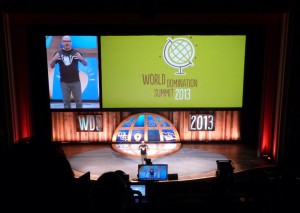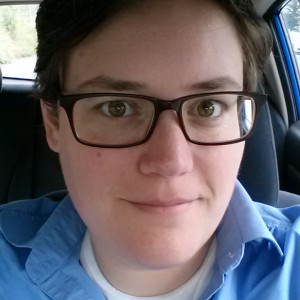I’ve read 32 books so far this year. You can see their covers above.
I <3 Detective Fiction
Once thing you’ll notice right away is that I love crime/detective fiction and that my current two favorite authors in this genre are Michael Connelly and Laura Lippman.
I’m working my way through Connelly’s Harry Bosch series in order and am a little over half way through. I’ll be sad when I’ve read the last Bosch novel, but Connelly is a prolific writer and his other novels include characters from the same universe. I identify strongly with Harry, particularly his creed that “everyone counts, or nobody counts” and his ability to disregard the rules when they don’t make sense.
In a similar vane, I’m working my way through Lippman’s popular Tess Monaghan series. The novels are set in Baltimore, which I have a slight affinity for having visited there and also being a huge fan of the best cop show ever, The Wire. I feel less of a personal connection to Tess, the main character in this series, than I do Harry Bosch, but it’s still awesome to get to read detective fiction where not only the author is a women but the protagonist is as well. Another thing I enjoy about the Monaghan series is that we follow Tess from her very beginnings and have the privilege of watching her grown and learn.
Much to my delight, Sara Gran published this year a sequel to the fantastic first Claire DeWitt detective novel, Claire DeWitt and the City of the Dead, set in New Orleans. The follow-up, called Claire DeWitt and the Bohemian Highway, takes place in San Francisco some years after the first novel. While it was great to visit with DeWitt again, I didn’t enjoy this novel as much as the first. It felt more rambling and less cohesive. Then again, our protagonist completely falls apart during this story and this could simply be a reflection of that. It some ways this second novel felt like more of an introduction to Claire’s world than the first. It left me wanting more, and I hope Gran continues to create stories about Claire. Oh, and if only Détection, the book-within-a-book detective manual, were a real book!
Why did it take me so long to read Neil Gaiman?
Finally this year I read Neil Gaiman. Sherri’s been gently recommending him to me for years, but I’ve just never been interested. “Oh, that’s fantasy,” I’d think, “and I don’t like fantasy.” Well, turns out if you call it magical realism instead of fantasy them I’m perfectly okay with it. What really tipped the scales, though, was going with Sherri to hear Neil read from Ocean and the End of the Lane. I felt such an immediate, strong connection with the story and I knew I had to read it and American Gods too, of which I’d had the 10th anniversary edition for some time but hadn’t dived in to. Well now I’ve read them both and they were amazing. And I’m a bit sad because I know I can never read them again for the first time.
Non-fiction about identity
I read some really great non-fiction this year as well, the highlights being: Far from the Tree, Quiet, Salt Sugar Fat, and The American Way of Eating.
Far From the Tree, by Andrew Soloman, examines identity, difference and diversity through the lens of families whose children have identities greatly from their parents. Soloman devotes a chapter to each of the following: Deafness, dwarfism, Down syndrome, autism, schizophrenia, multiple severe disabilities, child prodigies, children conceived during rape, children who are criminals, and transgender children. The topics are bookended by Soloman’s own experience with difference, first as a son and then as a father. This book had a profound effect on me. If you read it, I recommend doing so carefully, and consider skipping chapters that might be triggering to you (I skipped the one on child prodigies). What I gained from the book was an understanding of how difficult it is for us to build and maintain deep, authentic connections with one another, and a profound awe at the amount of effort that we’ll expend in order to have that connection. Paradoxically, the book also gave me relief from the pressure of having biological children. It made me realize that the sense of loss I have around not being able to (easily) have biological children is based in a sense of completing my own identity by having it reflected back to me in another human. What I now understand is that this sense of completion is not dependent on biological children, nor is it dependent on having my own identity reflected back to me. What it is dependent on is being connected deeply to others while we are both being our authentic selves.
Quiet by Susan Cain was an important read for me because it helped me understand my own temperament better. Am I an extrovert or an introvert? Depending on how I’m feeling, I flip back and forth between the two on the Meyers-Briggs scale. I love running events and planning things with other people, but simply attending an event where I have no defined role other than attendee is nearly paralyzing. I now understand a lot more about myself: I’m an introvert, highly sensitive to stimulation, but not a shy person. And, I have some more techniques for dealing with highly stimulating environments.
Non-fiction about food politics
If you’re interested in food politics, I highly recommend both Salt Sugar Fat by Michael Moss and The American Way of Eating by Tracie McMillan. In Salt Sugar Fat, Moss examines how the processed food industry has systematically created and marketed food that is not only bad for us but specifically designed to make us overeat and continue to do so. Moss argues that processed food is a public health issue, just as smoking is, and should come with the same regulation and warnings that tobacco products must. What surprised me most about this book was not that processed food is bad for you, or that the food industry cares about profit over our well-being, but just how long this has been the case. I had always thought Kraft cheese was an invention of the 60s and it’s not, it was created decades prior. The American Way of Eating is perfect to read next because it examines the notion that Americans can simply eschew processed foods and eat fresh, “real” food instead. McMillan examines how Americans obtain the food we eat hands-on in three scenarios: as migrant farm laborer picking varies fresh fruits and vegetables, as a worker at Walmart in Michigan, and as a server at Applebees in New York. For each of these scenarios, McMillan lived the part entirely, subsisted on the wages and the resulting lifestyle provided by those jobs. Because of this, we gain insight into the labor conditions of those integral to providing our food, how that food is often unaffordable to the those who make it available in the first place, and how overall economic and social conditions create barriers to utilizing healthy food when it is, seemingly, available. If you have a Michael Pollan book laying around that you haven’t managed to read yet, throw it away and read these two books instead.
What have you been reading?
What are some things you’ve read this year that have really stood out? Oh, and if you’re on Goodreads, send me a friend request!



